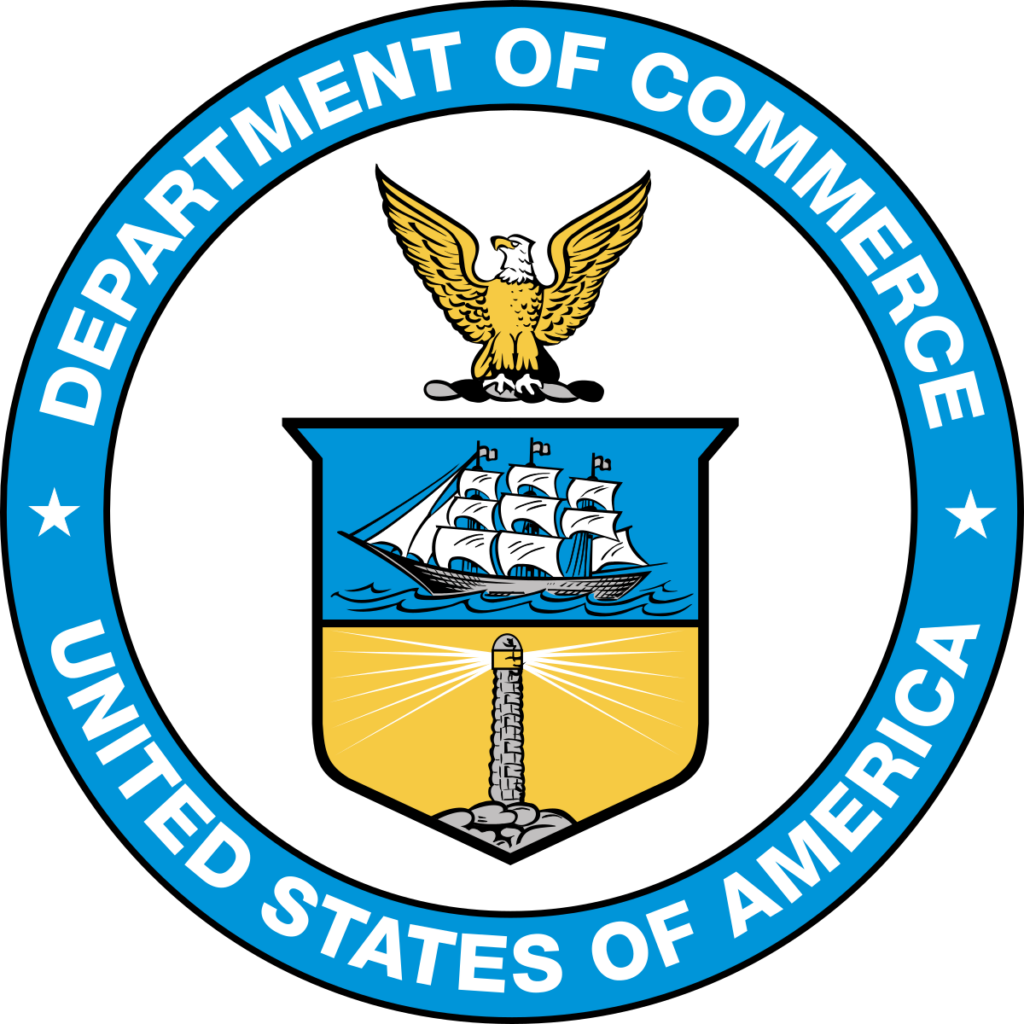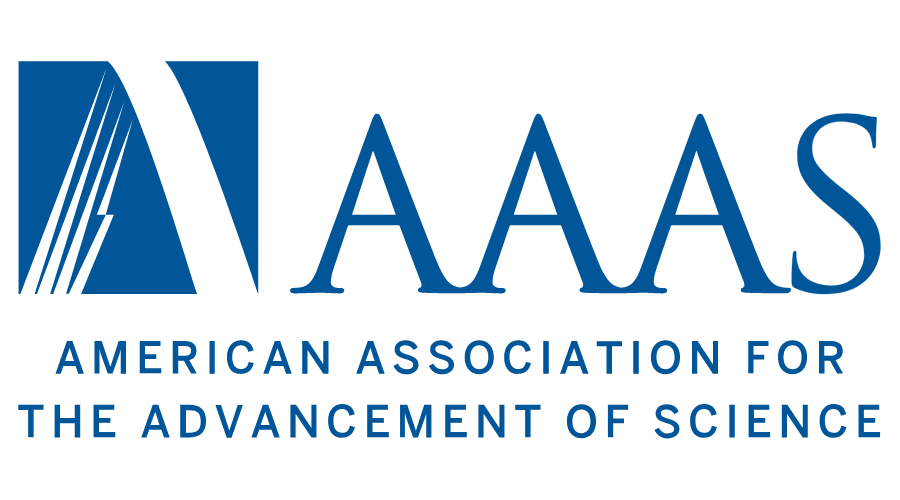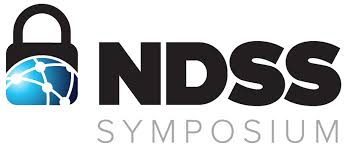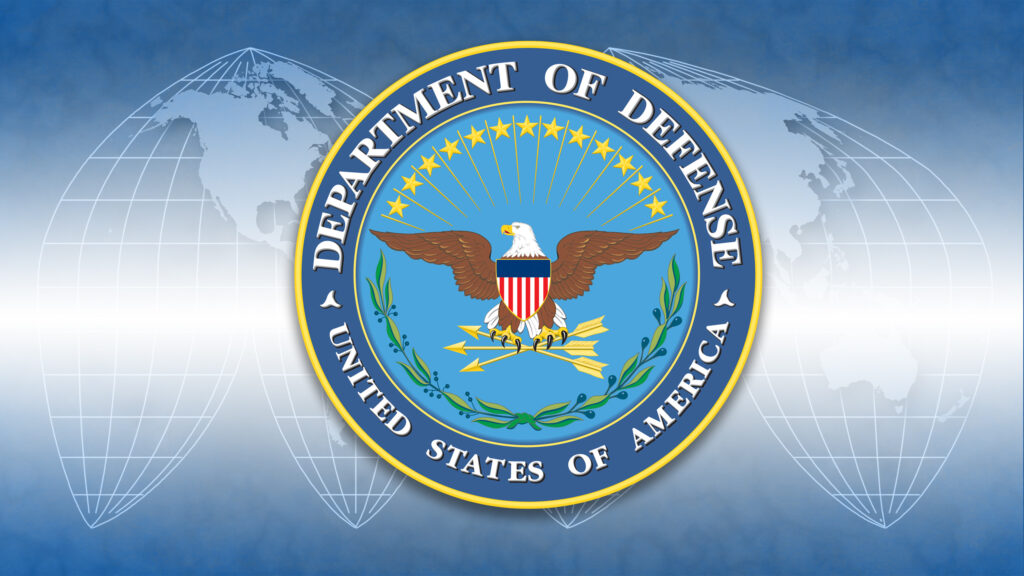
In January, 2020, the Congress enacted the William M. (Mac) Thornberry National Defense Authorization Act for Fiscal Year 2021 (Public Law No. 116-283). Section 9204(b)(5) of this act established the Internet of Things Advisory Board (IoTAB) within the Department of Commerce. In accordance with the Federal Advisory Act, as amended, 5 U.S.C., App., the IoTAB was chartered in December 2021. Current Charter Members - The National Institute of Standards and Technology (NIST) invited and requested nominations of individuals for appointment to the IoTAB. All members were appointed on Oct. 11, 2022 and all member terms expired on Oct. 10, 2024. All recommendations and findings of the IoT Advisor Board are included in its Final Report.

Baltimore, MD — [October 15, 2024] — Morgan State University has been awarded a $350,000 grant for groundbreaking research in quantum computing as part of the Securing Experimental Quantum Computing Usage in Research Environments (SEQCURE) program. This one-year grant supports a collaboration between Morgan State, the University of Maryland, and the Army Research Laboratory Intelligence and Security (ARLIS). The project aims to address critical challenges in Zero-Trust Architecture and AI/Machine Learning within the Air Force's First Two Node Quantum Computer. Under the leadership of Dr. Onyema Osuagwu (PI), a Cybersecurity Assurance and Policy Center (CAP) faculty member and head of the Computation, Circuits, Cognition & Cybernetics Laboratory (The C4 Lab) at Morgan State, the research will explore novel approaches to computing for secure military applications. These efforts align with the growing demand for advanced technologies that can safeguard sensitive operations, particularly in areas where traditional computing falls short. Several Morgan State students and a postdoctoral fellow will be funded to actively participate in the research, contributing to the university’s first-ever quantum computing initiative. The project offers hands-on experience for students, further enriching their academic journey while fostering new opportunities for innovation. “This research places Morgan State at the forefront of quantum computing in partnership with leading institutions. The work we’re doing has the potential to impact not just the military but many sectors reliant on secure, high-speed computing solutions,” said Dr. Osuagwu. The SEQCURE program highlights Morgan State University’s growing prominence in advanced scientific research, particularly as one of the few historically Black colleges and universities (HBCUs) involved in such cutting-edge technological endeavors. For media inquiries or more information, please contact the Office of Public Relations & Strategic Communications at 443-885-3022.

In the cybersecurity sector, the fusion of High-Performance Computing (HPC) and Artificial Intelligence (AI) stands out as a transformative force. Across government agencies, academic institutions, and industry consortia, collaborative research initiatives are harnessing the power of HPC-AI capabilities to reinforce cybersecurity programs, strengthen defense strategies and proactively combat increasingly sophisticated threats. Government-Funded Programs Leading the Charge Government agencies have been at the forefront of funding research initiatives aimed at advancing HPC-AI capabilities for cybersecurity. Programs such as the National Science Foundation (NSF) Cyber-Physical Systems (CPS) program and the Department of Defense (DoD) Cyber Scholarship Program (CySP) provide critical support for cutting-edge research in this field. Academic Partnerships Driving Innovation Academic institutions play a pivotal role in driving innovation in HPC-AI cybersecurity research. Collaborative partnerships between universities, research labs, and government entities facilitate the development of groundbreaking technologies and methodologies for threat intelligence, cyber threat hunting, and digital forensics. Industry Consortia Fostering Collaboration Industry consortia bring together leading cybersecurity firms, technology companies, and academic researchers to tackle complex challenges and drive industry-wide innovation. Initiatives like the Cyber Threat Intelligence Integration Center (CTIIC) and the Cybersecurity and Infrastructure Security Agency (CISA) collaborate with industry partners to develop HPC-powered AI applications for threat detection and response. Breakthroughs and Innovations in HPC-AI Applications The intersection of HPC and AI has led to significant breakthroughs in cybersecurity, revolutionizing how organizations detect, analyze, and mitigate cyber threats. Some notable advancements include: Threat Intelligence: HPC-powered AI algorithms analyze vast amounts of data from disparate sources to identify emerging threats and trends in real-time. By aggregating and correlating threat data, organizations can proactively defend against cyber-attacks and minimize the impact of security incidents. Cyber Threat Hunting: HPC enables rapid data processing and analysis, empowering security analysts to conduct proactive threat hunting activities. AI-driven threat hunting tools leverage machine learning models to identify suspicious behavior patterns and anomalies indicative of potential security breaches. Digital Forensics: HPC accelerates digital forensics investigations by enabling high-speed data acquisition, processing, and analysis. AI algorithms assist forensic analysts in reconstructing digital crime scenes, identifying evidence, and attributing cyber-attacks to threat actors with greater accuracy and efficiency. Driving the Evolution of Cyber Defense Strategies The integration of HPC-AI capabilities is driving the evolution of cyber defense strategies, enabling organizations to adapt to the dynamic threat landscape more effectively. By harnessing the power of HPC and AI, cybersecurity professionals can: Enhance Threat Detection: HPC-powered AI applications enable organizations to detect and respond to cyber threats with greater speed and accuracy, reducing the dwell time of attackers and minimizing the impact of security incidents. Improve Incident Response: AI-driven automation streamlines incident response processes, enabling security teams to prioritize and remediate security incidents more efficiently. By leveraging HPC for rapid data processing, organizations can shorten response times and mitigate the impact of cyber-attacks. Strengthen Resilience: By leveraging HPC-AI capabilities for threat intelligence, cyber threat hunting, and digital forensics, organizations can strengthen their cyber resilience and better protect critical assets and infrastructure from cyber threats. Conclusion In conclusion, the ongoing research initiatives and collaborative projects geared towards enhancing High Performance Computing (HPC) and Artificial Intelligence (AI) capabilities for cybersecurity mark a pivotal moment in the realm of digital defense. These endeavors signify a concerted effort to not only bolster the efficacy of threat intelligence but also to fortify cyber threat hunting and digital forensics methodologies. By leveraging the formidable capabilities of HPC and AI, organizations stand poised to strengthen their cyber defense strategies and proactively mitigate evolving threats in the intricate and ever-evolving threat landscape of the digital age. Through the fusion of cutting-edge technology and collaborative efforts, the future of cybersecurity is being reshaped, paving the way for a more resilient and secure digital ecosystem.

The automotive industry has witnessed a rapid evolution in vehicle technology, with Advanced Driver-Assisted Systems (ADAS) playing a pivotal role in enhancing safety and driving experiences. From adaptive cruise control to automated emergency braking, ADAS features have changed the way we interact with vehicles and navigate the roads. However, with these advancements comes a new set of challenges, particularly with cybersecurity. While the primary objective of the DoD cyber scholarship program is to recruit and train cybersecurity professionals to safeguard national security interests, its impact extends far beyond military applications. By nurturing expertise in automotive cybersecurity, the program indirectly contributes to initiatives aimed at fortifying Advanced Driver-Assisted Systems (ADAS) against cyber threats. This intersection of defense-oriented training and automotive security emphasizes the program's multifaceted significance in bolstering cybersecurity across various sectors, ultimately enhancing safety and resilience in the digital age. Understanding the Risks One of the primary concerns surrounding ADAS cybersecurity is the potential for malicious actors to exploit vulnerabilities within the software and communication networks of connected vehicles. Cyberattacks targeting ADAS systems can range from remote exploitation of software flaws to manipulation of sensor data, posing serious risks to driver safety and vehicle functionality. Additionally, the interconnected nature of modern vehicles introduces the possibility of cascading cyber incidents, where a compromise in one component can lead to widespread system failure. Proactive Measures for Protection To address these challenges, automotive manufacturers and technology providers are adopting proactive cybersecurity measures to safeguard ADAS-enabled vehicles against emerging threats. One key aspect of this approach is threat intelligence sharing, whereby industry stakeholders collaborate to identify and mitigate cyber risks. By sharing information about known vulnerabilities, attack techniques, and defensive strategies, organizations can collectively strengthen their cybersecurity posture and respond more effectively to evolving threats. Vulnerability management also plays a crucial role in ADAS cybersecurity, involving the identification, assessment, and remediation of potential security weaknesses within vehicle systems. This process includes regular security assessments, penetration testing, and software patching to address vulnerabilities before they can be exploited by malicious actors. Additionally, manufacturers are implementing secure software development practices to minimize the likelihood of introducing vulnerabilities during the development lifecycle. Secure communication protocols are another essential component of ADAS cybersecurity, ensuring that data exchanged between vehicle components and external systems remains confidential, authentic, and tamper-proof. Encryption techniques, authentication mechanisms, and intrusion detection systems help to safeguard communication channels from interception, manipulation, and unauthorized access. By implementing robust security measures at the network level, manufacturers can mitigate the risk of cyberattacks targeting ADAS systems. The Role of Regulation and Standards In addition to industry-led initiatives, government regulations and industry standards play a crucial role in shaping cybersecurity practices within the automotive sector. Regulatory frameworks such as the UN Regulation on Cybersecurity and Software Updates for Vehicles provide guidance on cybersecurity requirements for vehicle manufacturers, encouraging the adoption of best practices and risk-based approaches to cybersecurity. Similarly, industry standards such as ISO/SAE 21434 and SAE J3061 provide a framework for developing and implementing cybersecurity processes throughout the automotive supply chain. Education and Awareness Beyond technical solutions, education and awareness are essential components of effective ADAS cybersecurity. Drivers and vehicle owners must be informed about the potential risks associated with connected vehicles and the importance of maintaining secure practices, such as keeping software up to date and avoiding unauthorized modifications. Similarly, automotive professionals involved in the design, development, and maintenance of ADAS technologies should receive training on cybersecurity best practices and principles to ensure that security is integrated into every stage of the vehicle lifecycle. Looking Ahead As the automotive industry continues to innovate and evolve, the importance of cybersecurity in safeguarding ADAS technologies will only increase. By adopting proactive measures, leveraging threat intelligence, implementing secure software development practices, and adhering to regulatory requirements, manufacturers can enhance the resilience of ADAS-enabled vehicles against cyber threats. Additionally, ongoing education and awareness efforts will empower drivers and automotive professionals to play an active role in maintaining the security of connected vehicles, ensuring a safer and more secure transportation ecosystem for all.

U.S. Cyber Command continues to make significant strides in bolstering diversity and excellence in cybersecurity education through its on-going collaboration with Historically Black Colleges and Universities. The Academic Engagement Network, established by USCYBERCOM, aims to create a more inclusive and equitable cyber community through partnerships. Recognizing the critical role of diversity in addressing the complex challenges of cyberspace, the AEN actively engages with HBCUs and colleges serving diverse student populations. By doing so, it seeks to expand representation and introduce students to the rewarding careers available in cybersecurity. Recently, USCYBERCOM’s AEN engaged with Morgan State University (MSU), a trailblazer in cybersecurity education. Dr. Kevin T. Kornegay, a professor in cybersecurity at MSU’s Department of Electrical and Computer Engineering is the director of MSU’s Cybersecurity Assurance and Policy (CAP) Center, positioning the university as a leader in educating Black doctoral students in the critical field of “cyber.” READ MORE

Three esteemed Morgan State University faculty members were elected fellows of the American Association for the Advancement of Science (AAAS), the world’s largest general scientific society and publisher of the Science family of journals. Paul B. Tchounwou, D.Sc., Kevin T. Kornegay, Ph.D., and Farin Kamangar, Ph.D., M.D., each recognized for their advancement of science and service to society spanning their accomplished careers, were named to the 2023 class of AAAS Fellows comprising 502 scientists, engineers and innovators from around the world and across 24 disciplines. Election as an AAAS Fellow is one of the most distinguished honors within the scientific community. READ FULL ARTICLE

The American Association for the Advancement of Science (AAAS), one of the world’s largest general scientific societies and publisher of the Science family of journals, announces the 2023 class of AAAS Fellows, a distinguished lifetime honor within the scientific community. This latest class is comprised of 502 scientists, engineers and innovators across 24 AAAS disciplinary Sections. The newly elected Fellows overwhelmingly represent the fields of biological sciences, chemistry, medical sciences and engineering followed by neuroscience and physics. Congratualtions to our very ow, Dr. Kevin Kornegay for being named amonst the class. View the 2023 AAAS Fellows class HERE. READ MORE

Dr. Kevin Kornegay, Dr. Wondimu Zegeye and others received the Distinguished Paper Award at the Network and Distributed System Security (NDSS) Symposium during the 2024 Workshop on Security and Privacy in Standardized IoT (SDIoTSec). This award was presented in recognition of an outstanding contribution in the research field of Internet of Things and its standardization. Title: Designing and Evaluating a Testbed for the Matter Protocol: Insights into User Experience Authors: Ravindra Mangar (Dartmouth College) Jingyu Qian (University of Illinois), Wondimu Zegeye (Morgan State University), Abdulrahman AlRabah, Ben Civjan, Shalni Sundram, Sam Yuan, Carl A. Gunter (University of Illinois), Mounib Khanafer (American University of Kuwait), Kevin Kornegay (Morgan State University), Timothy J. Pierson, David Kotz (Dartmouth College) Presented: February 26 - March 1, 2024 in San Diego, California

In the rapidly evolving landscape of the Internet of Things (IoT) and edge computing, the demand for skilled professionals who can navigate the complexities of developing secure, efficient systems is at an all-time high. As businesses and industries increasingly rely on IoT devices and edge computing solutions to drive operations, the need for robust security measures and innovative computing strategies becomes paramount. This blog post aims to guide aspiring and current IoT professionals on developing the essential skills for secure edge computing, highlighting key resources and training opportunities. Understanding the Skills Gap The intersection of IoT and secure edge computing presents unique challenges and opportunities. Professionals in this field must not only understand the technical aspects of hardware and software but also grasp the nuances of network security, data analysis, and system design. This multidisciplinary requirement creates a skills gap that organizations are eager to fill with well-trained, knowledgeable individuals. Essential Skills for Secure Edge Computing Before diving into the resources and training programs available, let's outline the core skills needed for a career in secure edge computing within the IoT landscape: Technical Proficiency Understanding of IoT Devices: Knowledge of the various types of IoT devices, their functions, and limitations. Networking and Connectivity: Familiarity with networking protocols, wireless communication, and data transmission methods. Programming and Development: Proficiency in programming languages commonly used in IoT and edge computing, such as Python, Java, and C++. Data Management and Analysis: Skills in handling and analyzing data collected by IoT devices, including the use of big data tools and machine learning algorithms. Security Expertise Cybersecurity Principles: A strong foundation in cybersecurity practices, including encryption, authentication, and secure software development. Risk Management: Ability to identify, assess, and mitigate risks associated with IoT devices and edge computing networks. Compliance and Privacy: Understanding of regulatory requirements and privacy concerns related to IoT data and operations. Resources and Training for IoT Professionals To bridge the skills gap and prepare for a career in secure edge computing, consider leveraging the following resources and training programs: Online Courses and Certifications Coursera and edX offer cybersecurity workforce certification training, courses in IoT, and data science from reputable universities and institutions. Look for programs that specifically address secure edge computing. Udemy and Pluralsight provide targeted courses on IoT development, network security, and programming languages, catering to varying skill levels. CompTIA Security+ and Cisco’s CCNA certifications can bolster your understanding of network security and are highly regarded in the industry. Workshops and Bootcamps Attend workshops and bootcamps focused on IoT security and edge computing. These intensive training sessions offer hands-on experience and direct interaction with experts in the field. Industry conferences and seminars often include workshops and sessions dedicated to the latest trends and technologies in secure edge computing and IoT. Academic Programs Consider pursuing a degree or taking individual courses in computer science, information technology, cybersecurity, or a related field with a focus on IoT and edge computing. Some universities offer specialized programs or electives in IoT systems design and security, providing a comprehensive academic foundation. Professional Networks and Communities Join professional networks and online communities related to IoT and secure edge computing. Platforms like LinkedIn, Reddit, and specialized forums can provide valuable insights, advice, and networking opportunities. Participate in hackathons and competitions focused on IoT and edge computing solutions. These events can offer practical experience and exposure to real-world challenges. Industry Publications and Resources Stay informed about the latest trends, challenges, and advancements in IoT and secure edge computing by following industry publications, blogs, and research papers. Organizations like the IEEE and the IoT Security Foundation offer resources, white papers, and guidelines that can deepen your understanding of the field. Developing skills in secure edge computing for IoT requires a multifaceted approach, combining technical knowledge, security expertise, and continuous learning. By leveraging online courses, workshops, academic programs, professional networks, and industry resources, aspiring and current IoT professionals can equip themselves with the tools needed to succeed in this dynamic field. As the demand for secure, efficient IoT solutions grows, so does the opportunity for skilled professionals to make a significant impact on the future of technology.

In the rapidly evolving digital landscape, the integration of Internet of Things (IoT) devices with secure edge computing is revolutionizing industries by offering smarter, faster, and more efficient solutions. Particularly in sectors like healthcare and manufacturing, where data sensitivity and real-time processing are paramount, the impact of secure edge computing is transformative. This blog delves into how secure edge computing is reshaping IoT applications in these fields and explores its potential in other areas. The Foundation of Secure Edge Computing in IoT Secure edge computing refers to processing data near the source of data generation rather than relying on a centralized data-processing warehouse. This proximity to data sources allows for real-time data processing without latency, enhances security by reducing data transmission, and alleviates bandwidth demand on networks. In the context of IoT, secure edge computing enables devices to perform complex tasks and make decisions independently, making IoT networks more efficient and scalable. Transforming Healthcare with IoT and Secure Edge Computing In healthcare, the stakes for privacy, data security, and real-time processing are incredibly high. IoT devices, such as wearable health monitors and connected medical equipment, generate vast amounts of data that require immediate analysis for patient care decisions. Secure edge computing processes this data on-site, or near the patient, ensuring swift, accurate health monitoring and diagnostics without the latency and security risks associated with transmitting data to a distant cloud or data center. Secure edge computing also enables remote patient monitoring, allowing healthcare providers to deliver personalized care to patients in their homes. By processing data at the edge, sensitive patient information is better protected, and caregivers can make immediate, informed decisions based on real-time data analysis. Revolutionizing Manufacturing with IoT and Secure Edge Computing The manufacturing sector benefits significantly from IoT and secure edge computing through the concept of the smart factory. In these environments, IoT sensors and devices monitor and control manufacturing processes, manage supply chains, and predict maintenance needs. By deploying secure edge computing, manufacturers process this data on the factory floor, leading to improved operational efficiency, reduced downtime, and enhanced hardware cybersecurity. Secure edge computing in manufacturing also supports the implementation of digital twins, virtual replicas of physical processes, and products that can predict outcomes based on real-time data. This capability allows for unprecedented levels of product customization, quality control, and supply chain management, all while safeguarding sensitive data. Beyond Healthcare and Manufacturing: The Future of Secure Edge Computing in IoT The potential applications of secure edge computing in IoT extend far beyond healthcare and manufacturing. In smart cities, for example, secure edge computing can manage traffic flow, optimize energy use, and enhance public safety through immediate data analysis and response. In agriculture, it can process data from soil sensors and drones to make instant decisions about irrigation and crop health, optimizing yield and resource use. Challenges and Considerations Despite its benefits, the deployment of secure edge computing in IoT comes with challenges. Ensuring the physical security of edge devices, managing the complexity of edge networks, and maintaining data privacy and compliance are critical considerations. Furthermore, developing standardized protocols for interoperability among diverse devices and platforms is essential for maximizing the potential of IoT and secure edge computing. Secure edge computing is set to redefine the landscape of IoT by enabling smarter, faster, and more secure operations across various industries. In healthcare and manufacturing, where it's already making significant strides, it promises to improve outcomes, enhance efficiency, and protect sensitive data. As technology advances and standards evolve, the adoption of secure edge computing in IoT will continue to expand, unlocking new possibilities and transforming our approach to data processing and analysis in an increasingly connected world.

With two centers focused on AI technology and cybersecurity, Morgan State University (MSU) is poised to level the playing field for students and users of the technology... ...With the advent of the Internet of Things, hacking one device can compromise everything connected to it. “Think about how many of these connected devices you encounter throughout the day,” says CAP Center Director Kevin Kornegay. “Since everything’s connected to everything, you’re not safe anymore.” But the CAP Center, which was established in 2018, is looking to change that. Increasingly, devices themselves are analyzing and computing data at “the edge” instead of sending big datasets back to central processing centers. That provides a huge time savings, allowing cars, thermostats, and similar products to respond in real time. But this can be risky, since distributing data across more devices means more possible targets for hackers, and some devices aren’t secure out-of-the-box. READ MORE

The U.S. Department of Defense has announced that it has awarded approximately $27 million for a USC-led Microelectronics Commons project. The university will lead a coalition of research and industry organizations with the power to accelerate the development and manufacturing of microelectronics in the United States. The coalition is led by researchers at ISI and the USC Viterbi Ming Hsieh Department of Electronic and Computer Engineering. The partner institutions within higher education are Caltech; Morgan State University in Baltimore; North Carolina A&T State University; Pasadena City College; University of California, Irvine; UCLA; University of California, Riverside; University of California, San Diego; and University of California, Santa Barbara. READ MORE

In January, 2020, the Congress enacted the William M. (Mac) Thornberry National Defense Authorization Act for Fiscal Year 2021 (Public Law No. 116-283). Section 9204(b)(5) of this act established the Internet of Things Advisory Board (IoTAB) within the Department of Commerce. In accordance with the Federal Advisory Act, as amended, 5 U.S.C., App., the IoTAB was chartered in December 2021. Current Charter Members - The National Institute of Standards and Technology (NIST) invited and requested nominations of individuals for appointment to the IoTAB. All members were appointed on Oct. 11, 2022 and all member terms expired on Oct. 10, 2024. All recommendations and findings of the IoT Advisor Board are included in its Final Report.

Baltimore, MD — [October 15, 2024] — Morgan State University has been awarded a $350,000 grant for groundbreaking research in quantum computing as part of the Securing Experimental Quantum Computing Usage in Research Environments (SEQCURE) program. This one-year grant supports a collaboration between Morgan State, the University of Maryland, and the Army Research Laboratory Intelligence and Security (ARLIS). The project aims to address critical challenges in Zero-Trust Architecture and AI/Machine Learning within the Air Force's First Two Node Quantum Computer. Under the leadership of Dr. Onyema Osuagwu (PI), a Cybersecurity Assurance and Policy Center (CAP) faculty member and head of the Computation, Circuits, Cognition & Cybernetics Laboratory (The C4 Lab) at Morgan State, the research will explore novel approaches to computing for secure military applications. These efforts align with the growing demand for advanced technologies that can safeguard sensitive operations, particularly in areas where traditional computing falls short. Several Morgan State students and a postdoctoral fellow will be funded to actively participate in the research, contributing to the university’s first-ever quantum computing initiative. The project offers hands-on experience for students, further enriching their academic journey while fostering new opportunities for innovation. “This research places Morgan State at the forefront of quantum computing in partnership with leading institutions. The work we’re doing has the potential to impact not just the military but many sectors reliant on secure, high-speed computing solutions,” said Dr. Osuagwu. The SEQCURE program highlights Morgan State University’s growing prominence in advanced scientific research, particularly as one of the few historically Black colleges and universities (HBCUs) involved in such cutting-edge technological endeavors. For media inquiries or more information, please contact the Office of Public Relations & Strategic Communications at 443-885-3022.

In the cybersecurity sector, the fusion of High-Performance Computing (HPC) and Artificial Intelligence (AI) stands out as a transformative force. Across government agencies, academic institutions, and industry consortia, collaborative research initiatives are harnessing the power of HPC-AI capabilities to reinforce cybersecurity programs, strengthen defense strategies and proactively combat increasingly sophisticated threats. Government-Funded Programs Leading the Charge Government agencies have been at the forefront of funding research initiatives aimed at advancing HPC-AI capabilities for cybersecurity. Programs such as the National Science Foundation (NSF) Cyber-Physical Systems (CPS) program and the Department of Defense (DoD) Cyber Scholarship Program (CySP) provide critical support for cutting-edge research in this field. Academic Partnerships Driving Innovation Academic institutions play a pivotal role in driving innovation in HPC-AI cybersecurity research. Collaborative partnerships between universities, research labs, and government entities facilitate the development of groundbreaking technologies and methodologies for threat intelligence, cyber threat hunting, and digital forensics. Industry Consortia Fostering Collaboration Industry consortia bring together leading cybersecurity firms, technology companies, and academic researchers to tackle complex challenges and drive industry-wide innovation. Initiatives like the Cyber Threat Intelligence Integration Center (CTIIC) and the Cybersecurity and Infrastructure Security Agency (CISA) collaborate with industry partners to develop HPC-powered AI applications for threat detection and response. Breakthroughs and Innovations in HPC-AI Applications The intersection of HPC and AI has led to significant breakthroughs in cybersecurity, revolutionizing how organizations detect, analyze, and mitigate cyber threats. Some notable advancements include: Threat Intelligence: HPC-powered AI algorithms analyze vast amounts of data from disparate sources to identify emerging threats and trends in real-time. By aggregating and correlating threat data, organizations can proactively defend against cyber-attacks and minimize the impact of security incidents. Cyber Threat Hunting: HPC enables rapid data processing and analysis, empowering security analysts to conduct proactive threat hunting activities. AI-driven threat hunting tools leverage machine learning models to identify suspicious behavior patterns and anomalies indicative of potential security breaches. Digital Forensics: HPC accelerates digital forensics investigations by enabling high-speed data acquisition, processing, and analysis. AI algorithms assist forensic analysts in reconstructing digital crime scenes, identifying evidence, and attributing cyber-attacks to threat actors with greater accuracy and efficiency. Driving the Evolution of Cyber Defense Strategies The integration of HPC-AI capabilities is driving the evolution of cyber defense strategies, enabling organizations to adapt to the dynamic threat landscape more effectively. By harnessing the power of HPC and AI, cybersecurity professionals can: Enhance Threat Detection: HPC-powered AI applications enable organizations to detect and respond to cyber threats with greater speed and accuracy, reducing the dwell time of attackers and minimizing the impact of security incidents. Improve Incident Response: AI-driven automation streamlines incident response processes, enabling security teams to prioritize and remediate security incidents more efficiently. By leveraging HPC for rapid data processing, organizations can shorten response times and mitigate the impact of cyber-attacks. Strengthen Resilience: By leveraging HPC-AI capabilities for threat intelligence, cyber threat hunting, and digital forensics, organizations can strengthen their cyber resilience and better protect critical assets and infrastructure from cyber threats. Conclusion In conclusion, the ongoing research initiatives and collaborative projects geared towards enhancing High Performance Computing (HPC) and Artificial Intelligence (AI) capabilities for cybersecurity mark a pivotal moment in the realm of digital defense. These endeavors signify a concerted effort to not only bolster the efficacy of threat intelligence but also to fortify cyber threat hunting and digital forensics methodologies. By leveraging the formidable capabilities of HPC and AI, organizations stand poised to strengthen their cyber defense strategies and proactively mitigate evolving threats in the intricate and ever-evolving threat landscape of the digital age. Through the fusion of cutting-edge technology and collaborative efforts, the future of cybersecurity is being reshaped, paving the way for a more resilient and secure digital ecosystem.

The automotive industry has witnessed a rapid evolution in vehicle technology, with Advanced Driver-Assisted Systems (ADAS) playing a pivotal role in enhancing safety and driving experiences. From adaptive cruise control to automated emergency braking, ADAS features have changed the way we interact with vehicles and navigate the roads. However, with these advancements comes a new set of challenges, particularly with cybersecurity. While the primary objective of the DoD cyber scholarship program is to recruit and train cybersecurity professionals to safeguard national security interests, its impact extends far beyond military applications. By nurturing expertise in automotive cybersecurity, the program indirectly contributes to initiatives aimed at fortifying Advanced Driver-Assisted Systems (ADAS) against cyber threats. This intersection of defense-oriented training and automotive security emphasizes the program's multifaceted significance in bolstering cybersecurity across various sectors, ultimately enhancing safety and resilience in the digital age. Understanding the Risks One of the primary concerns surrounding ADAS cybersecurity is the potential for malicious actors to exploit vulnerabilities within the software and communication networks of connected vehicles. Cyberattacks targeting ADAS systems can range from remote exploitation of software flaws to manipulation of sensor data, posing serious risks to driver safety and vehicle functionality. Additionally, the interconnected nature of modern vehicles introduces the possibility of cascading cyber incidents, where a compromise in one component can lead to widespread system failure. Proactive Measures for Protection To address these challenges, automotive manufacturers and technology providers are adopting proactive cybersecurity measures to safeguard ADAS-enabled vehicles against emerging threats. One key aspect of this approach is threat intelligence sharing, whereby industry stakeholders collaborate to identify and mitigate cyber risks. By sharing information about known vulnerabilities, attack techniques, and defensive strategies, organizations can collectively strengthen their cybersecurity posture and respond more effectively to evolving threats. Vulnerability management also plays a crucial role in ADAS cybersecurity, involving the identification, assessment, and remediation of potential security weaknesses within vehicle systems. This process includes regular security assessments, penetration testing, and software patching to address vulnerabilities before they can be exploited by malicious actors. Additionally, manufacturers are implementing secure software development practices to minimize the likelihood of introducing vulnerabilities during the development lifecycle. Secure communication protocols are another essential component of ADAS cybersecurity, ensuring that data exchanged between vehicle components and external systems remains confidential, authentic, and tamper-proof. Encryption techniques, authentication mechanisms, and intrusion detection systems help to safeguard communication channels from interception, manipulation, and unauthorized access. By implementing robust security measures at the network level, manufacturers can mitigate the risk of cyberattacks targeting ADAS systems. The Role of Regulation and Standards In addition to industry-led initiatives, government regulations and industry standards play a crucial role in shaping cybersecurity practices within the automotive sector. Regulatory frameworks such as the UN Regulation on Cybersecurity and Software Updates for Vehicles provide guidance on cybersecurity requirements for vehicle manufacturers, encouraging the adoption of best practices and risk-based approaches to cybersecurity. Similarly, industry standards such as ISO/SAE 21434 and SAE J3061 provide a framework for developing and implementing cybersecurity processes throughout the automotive supply chain. Education and Awareness Beyond technical solutions, education and awareness are essential components of effective ADAS cybersecurity. Drivers and vehicle owners must be informed about the potential risks associated with connected vehicles and the importance of maintaining secure practices, such as keeping software up to date and avoiding unauthorized modifications. Similarly, automotive professionals involved in the design, development, and maintenance of ADAS technologies should receive training on cybersecurity best practices and principles to ensure that security is integrated into every stage of the vehicle lifecycle. Looking Ahead As the automotive industry continues to innovate and evolve, the importance of cybersecurity in safeguarding ADAS technologies will only increase. By adopting proactive measures, leveraging threat intelligence, implementing secure software development practices, and adhering to regulatory requirements, manufacturers can enhance the resilience of ADAS-enabled vehicles against cyber threats. Additionally, ongoing education and awareness efforts will empower drivers and automotive professionals to play an active role in maintaining the security of connected vehicles, ensuring a safer and more secure transportation ecosystem for all.

U.S. Cyber Command continues to make significant strides in bolstering diversity and excellence in cybersecurity education through its on-going collaboration with Historically Black Colleges and Universities. The Academic Engagement Network, established by USCYBERCOM, aims to create a more inclusive and equitable cyber community through partnerships. Recognizing the critical role of diversity in addressing the complex challenges of cyberspace, the AEN actively engages with HBCUs and colleges serving diverse student populations. By doing so, it seeks to expand representation and introduce students to the rewarding careers available in cybersecurity. Recently, USCYBERCOM’s AEN engaged with Morgan State University (MSU), a trailblazer in cybersecurity education. Dr. Kevin T. Kornegay, a professor in cybersecurity at MSU’s Department of Electrical and Computer Engineering is the director of MSU’s Cybersecurity Assurance and Policy (CAP) Center, positioning the university as a leader in educating Black doctoral students in the critical field of “cyber.” READ MORE

Three esteemed Morgan State University faculty members were elected fellows of the American Association for the Advancement of Science (AAAS), the world’s largest general scientific society and publisher of the Science family of journals. Paul B. Tchounwou, D.Sc., Kevin T. Kornegay, Ph.D., and Farin Kamangar, Ph.D., M.D., each recognized for their advancement of science and service to society spanning their accomplished careers, were named to the 2023 class of AAAS Fellows comprising 502 scientists, engineers and innovators from around the world and across 24 disciplines. Election as an AAAS Fellow is one of the most distinguished honors within the scientific community. READ FULL ARTICLE

The American Association for the Advancement of Science (AAAS), one of the world’s largest general scientific societies and publisher of the Science family of journals, announces the 2023 class of AAAS Fellows, a distinguished lifetime honor within the scientific community. This latest class is comprised of 502 scientists, engineers and innovators across 24 AAAS disciplinary Sections. The newly elected Fellows overwhelmingly represent the fields of biological sciences, chemistry, medical sciences and engineering followed by neuroscience and physics. Congratualtions to our very ow, Dr. Kevin Kornegay for being named amonst the class. View the 2023 AAAS Fellows class HERE. READ MORE

Dr. Kevin Kornegay, Dr. Wondimu Zegeye and others received the Distinguished Paper Award at the Network and Distributed System Security (NDSS) Symposium during the 2024 Workshop on Security and Privacy in Standardized IoT (SDIoTSec). This award was presented in recognition of an outstanding contribution in the research field of Internet of Things and its standardization. Title: Designing and Evaluating a Testbed for the Matter Protocol: Insights into User Experience Authors: Ravindra Mangar (Dartmouth College) Jingyu Qian (University of Illinois), Wondimu Zegeye (Morgan State University), Abdulrahman AlRabah, Ben Civjan, Shalni Sundram, Sam Yuan, Carl A. Gunter (University of Illinois), Mounib Khanafer (American University of Kuwait), Kevin Kornegay (Morgan State University), Timothy J. Pierson, David Kotz (Dartmouth College) Presented: February 26 - March 1, 2024 in San Diego, California

In the rapidly evolving landscape of the Internet of Things (IoT) and edge computing, the demand for skilled professionals who can navigate the complexities of developing secure, efficient systems is at an all-time high. As businesses and industries increasingly rely on IoT devices and edge computing solutions to drive operations, the need for robust security measures and innovative computing strategies becomes paramount. This blog post aims to guide aspiring and current IoT professionals on developing the essential skills for secure edge computing, highlighting key resources and training opportunities. Understanding the Skills Gap The intersection of IoT and secure edge computing presents unique challenges and opportunities. Professionals in this field must not only understand the technical aspects of hardware and software but also grasp the nuances of network security, data analysis, and system design. This multidisciplinary requirement creates a skills gap that organizations are eager to fill with well-trained, knowledgeable individuals. Essential Skills for Secure Edge Computing Before diving into the resources and training programs available, let's outline the core skills needed for a career in secure edge computing within the IoT landscape: Technical Proficiency Understanding of IoT Devices: Knowledge of the various types of IoT devices, their functions, and limitations. Networking and Connectivity: Familiarity with networking protocols, wireless communication, and data transmission methods. Programming and Development: Proficiency in programming languages commonly used in IoT and edge computing, such as Python, Java, and C++. Data Management and Analysis: Skills in handling and analyzing data collected by IoT devices, including the use of big data tools and machine learning algorithms. Security Expertise Cybersecurity Principles: A strong foundation in cybersecurity practices, including encryption, authentication, and secure software development. Risk Management: Ability to identify, assess, and mitigate risks associated with IoT devices and edge computing networks. Compliance and Privacy: Understanding of regulatory requirements and privacy concerns related to IoT data and operations. Resources and Training for IoT Professionals To bridge the skills gap and prepare for a career in secure edge computing, consider leveraging the following resources and training programs: Online Courses and Certifications Coursera and edX offer cybersecurity workforce certification training, courses in IoT, and data science from reputable universities and institutions. Look for programs that specifically address secure edge computing. Udemy and Pluralsight provide targeted courses on IoT development, network security, and programming languages, catering to varying skill levels. CompTIA Security+ and Cisco’s CCNA certifications can bolster your understanding of network security and are highly regarded in the industry. Workshops and Bootcamps Attend workshops and bootcamps focused on IoT security and edge computing. These intensive training sessions offer hands-on experience and direct interaction with experts in the field. Industry conferences and seminars often include workshops and sessions dedicated to the latest trends and technologies in secure edge computing and IoT. Academic Programs Consider pursuing a degree or taking individual courses in computer science, information technology, cybersecurity, or a related field with a focus on IoT and edge computing. Some universities offer specialized programs or electives in IoT systems design and security, providing a comprehensive academic foundation. Professional Networks and Communities Join professional networks and online communities related to IoT and secure edge computing. Platforms like LinkedIn, Reddit, and specialized forums can provide valuable insights, advice, and networking opportunities. Participate in hackathons and competitions focused on IoT and edge computing solutions. These events can offer practical experience and exposure to real-world challenges. Industry Publications and Resources Stay informed about the latest trends, challenges, and advancements in IoT and secure edge computing by following industry publications, blogs, and research papers. Organizations like the IEEE and the IoT Security Foundation offer resources, white papers, and guidelines that can deepen your understanding of the field. Developing skills in secure edge computing for IoT requires a multifaceted approach, combining technical knowledge, security expertise, and continuous learning. By leveraging online courses, workshops, academic programs, professional networks, and industry resources, aspiring and current IoT professionals can equip themselves with the tools needed to succeed in this dynamic field. As the demand for secure, efficient IoT solutions grows, so does the opportunity for skilled professionals to make a significant impact on the future of technology.

In the rapidly evolving digital landscape, the integration of Internet of Things (IoT) devices with secure edge computing is revolutionizing industries by offering smarter, faster, and more efficient solutions. Particularly in sectors like healthcare and manufacturing, where data sensitivity and real-time processing are paramount, the impact of secure edge computing is transformative. This blog delves into how secure edge computing is reshaping IoT applications in these fields and explores its potential in other areas. The Foundation of Secure Edge Computing in IoT Secure edge computing refers to processing data near the source of data generation rather than relying on a centralized data-processing warehouse. This proximity to data sources allows for real-time data processing without latency, enhances security by reducing data transmission, and alleviates bandwidth demand on networks. In the context of IoT, secure edge computing enables devices to perform complex tasks and make decisions independently, making IoT networks more efficient and scalable. Transforming Healthcare with IoT and Secure Edge Computing In healthcare, the stakes for privacy, data security, and real-time processing are incredibly high. IoT devices, such as wearable health monitors and connected medical equipment, generate vast amounts of data that require immediate analysis for patient care decisions. Secure edge computing processes this data on-site, or near the patient, ensuring swift, accurate health monitoring and diagnostics without the latency and security risks associated with transmitting data to a distant cloud or data center. Secure edge computing also enables remote patient monitoring, allowing healthcare providers to deliver personalized care to patients in their homes. By processing data at the edge, sensitive patient information is better protected, and caregivers can make immediate, informed decisions based on real-time data analysis. Revolutionizing Manufacturing with IoT and Secure Edge Computing The manufacturing sector benefits significantly from IoT and secure edge computing through the concept of the smart factory. In these environments, IoT sensors and devices monitor and control manufacturing processes, manage supply chains, and predict maintenance needs. By deploying secure edge computing, manufacturers process this data on the factory floor, leading to improved operational efficiency, reduced downtime, and enhanced hardware cybersecurity. Secure edge computing in manufacturing also supports the implementation of digital twins, virtual replicas of physical processes, and products that can predict outcomes based on real-time data. This capability allows for unprecedented levels of product customization, quality control, and supply chain management, all while safeguarding sensitive data. Beyond Healthcare and Manufacturing: The Future of Secure Edge Computing in IoT The potential applications of secure edge computing in IoT extend far beyond healthcare and manufacturing. In smart cities, for example, secure edge computing can manage traffic flow, optimize energy use, and enhance public safety through immediate data analysis and response. In agriculture, it can process data from soil sensors and drones to make instant decisions about irrigation and crop health, optimizing yield and resource use. Challenges and Considerations Despite its benefits, the deployment of secure edge computing in IoT comes with challenges. Ensuring the physical security of edge devices, managing the complexity of edge networks, and maintaining data privacy and compliance are critical considerations. Furthermore, developing standardized protocols for interoperability among diverse devices and platforms is essential for maximizing the potential of IoT and secure edge computing. Secure edge computing is set to redefine the landscape of IoT by enabling smarter, faster, and more secure operations across various industries. In healthcare and manufacturing, where it's already making significant strides, it promises to improve outcomes, enhance efficiency, and protect sensitive data. As technology advances and standards evolve, the adoption of secure edge computing in IoT will continue to expand, unlocking new possibilities and transforming our approach to data processing and analysis in an increasingly connected world.

With two centers focused on AI technology and cybersecurity, Morgan State University (MSU) is poised to level the playing field for students and users of the technology... ...With the advent of the Internet of Things, hacking one device can compromise everything connected to it. “Think about how many of these connected devices you encounter throughout the day,” says CAP Center Director Kevin Kornegay. “Since everything’s connected to everything, you’re not safe anymore.” But the CAP Center, which was established in 2018, is looking to change that. Increasingly, devices themselves are analyzing and computing data at “the edge” instead of sending big datasets back to central processing centers. That provides a huge time savings, allowing cars, thermostats, and similar products to respond in real time. But this can be risky, since distributing data across more devices means more possible targets for hackers, and some devices aren’t secure out-of-the-box. READ MORE

The U.S. Department of Defense has announced that it has awarded approximately $27 million for a USC-led Microelectronics Commons project. The university will lead a coalition of research and industry organizations with the power to accelerate the development and manufacturing of microelectronics in the United States. The coalition is led by researchers at ISI and the USC Viterbi Ming Hsieh Department of Electronic and Computer Engineering. The partner institutions within higher education are Caltech; Morgan State University in Baltimore; North Carolina A&T State University; Pasadena City College; University of California, Irvine; UCLA; University of California, Riverside; University of California, San Diego; and University of California, Santa Barbara. READ MORE
